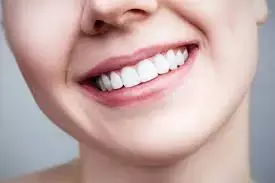- Home
- Medical news & Guidelines
- Anesthesiology
- Cardiology and CTVS
- Critical Care
- Dentistry
- Dermatology
- Diabetes and Endocrinology
- ENT
- Gastroenterology
- Medicine
- Nephrology
- Neurology
- Obstretics-Gynaecology
- Oncology
- Ophthalmology
- Orthopaedics
- Pediatrics-Neonatology
- Psychiatry
- Pulmonology
- Radiology
- Surgery
- Urology
- Laboratory Medicine
- Diet
- Nursing
- Paramedical
- Physiotherapy
- Health news
- Fact Check
- Bone Health Fact Check
- Brain Health Fact Check
- Cancer Related Fact Check
- Child Care Fact Check
- Dental and oral health fact check
- Diabetes and metabolic health fact check
- Diet and Nutrition Fact Check
- Eye and ENT Care Fact Check
- Fitness fact check
- Gut health fact check
- Heart health fact check
- Kidney health fact check
- Medical education fact check
- Men's health fact check
- Respiratory fact check
- Skin and hair care fact check
- Vaccine and Immunization fact check
- Women's health fact check
- AYUSH
- State News
- Andaman and Nicobar Islands
- Andhra Pradesh
- Arunachal Pradesh
- Assam
- Bihar
- Chandigarh
- Chattisgarh
- Dadra and Nagar Haveli
- Daman and Diu
- Delhi
- Goa
- Gujarat
- Haryana
- Himachal Pradesh
- Jammu & Kashmir
- Jharkhand
- Karnataka
- Kerala
- Ladakh
- Lakshadweep
- Madhya Pradesh
- Maharashtra
- Manipur
- Meghalaya
- Mizoram
- Nagaland
- Odisha
- Puducherry
- Punjab
- Rajasthan
- Sikkim
- Tamil Nadu
- Telangana
- Tripura
- Uttar Pradesh
- Uttrakhand
- West Bengal
- Medical Education
- Industry
Maxillary posterior gingiva and teeth displayed influence smile attractiveness: study

Maxillary posterior gingiva and teeth displayed influence smile attractiveness according to a recent study published in the International Dental Journal.
The aim of this research was to establish standard norms for posterior smile-related characteristics including posterior smile line (PSL), the most posterior teeth displayed, buccal corridor ratio (BCR), and buccal corridor symmetry (BCS) and investigate its aesthetic contributions to smile attractiveness in a Chinese population.
From digitally recorded dynamic smile videos of young Chinese participants, 188 standardised full-smile images were captured and then aesthetically evaluated by 22 laypersons using a visual analogue scale (VAS). Four smile-related variables in the posterior region were analysed. VAS data were compared between subgroups to test the influence of these variables on smile aesthetics with a significance level of P < .05.
Results:
- The VAS scores of participants with high PSL were significantly lower than those with average or low PSL (P < .01), especially when they display average or low anterior smile line (P < .05).
- Smiles with the second premolar displayed obtained the highest VAS amongst the 3 subgroups (P < .05).
- No significant differences were found between the VAS scores of BCR and BCS (P > .05).
Thus, maxillary posterior gingiva and teeth displayed influence smile attractiveness evaluated by laypersons, which should be given attention when treating patients with compromised aesthetics, especially those displaying average or low anterior smile lines.
Reference:
Ning Wei, Cui Wang, Yanling Zhang, Yiping Wei, Wenjie Hu, Xu Yang, Kwok-Hung Chung. The Influence of the Maxillary Posterior Region on Smile Aesthetics in a Chinese Cohort. International Dental Journal, Volume 72, Issue 5, 2022, Pages 659-666, ISSN 0020-6539. https://doi.org/10.1016/j.identj.2022.02.004.
Keywords:
Maxillary, posterior, gingiva, teeth, displayed, influence, smile, attractiveness, Anterior smile, line, Posterior smile line, Aesthetics Visual, analog scale, Ning Wei, Cui Wang, Yanling Zhang, Yiping Wei, Wenjie Hu, Xu Yang, Kwok-Hung Chung
Dr. Shravani Dali has completed her BDS from Pravara institute of medical sciences, loni. Following which she extensively worked in the healthcare sector for 2+ years. She has been actively involved in writing blogs in field of health and wellness. Currently she is pursuing her Masters of public health-health administration from Tata institute of social sciences. She can be contacted at editorial@medicaldialogues.in.
Dr Kamal Kant Kohli-MBBS, DTCD- a chest specialist with more than 30 years of practice and a flair for writing clinical articles, Dr Kamal Kant Kohli joined Medical Dialogues as a Chief Editor of Medical News. Besides writing articles, as an editor, he proofreads and verifies all the medical content published on Medical Dialogues including those coming from journals, studies,medical conferences,guidelines etc. Email: drkohli@medicaldialogues.in. Contact no. 011-43720751


